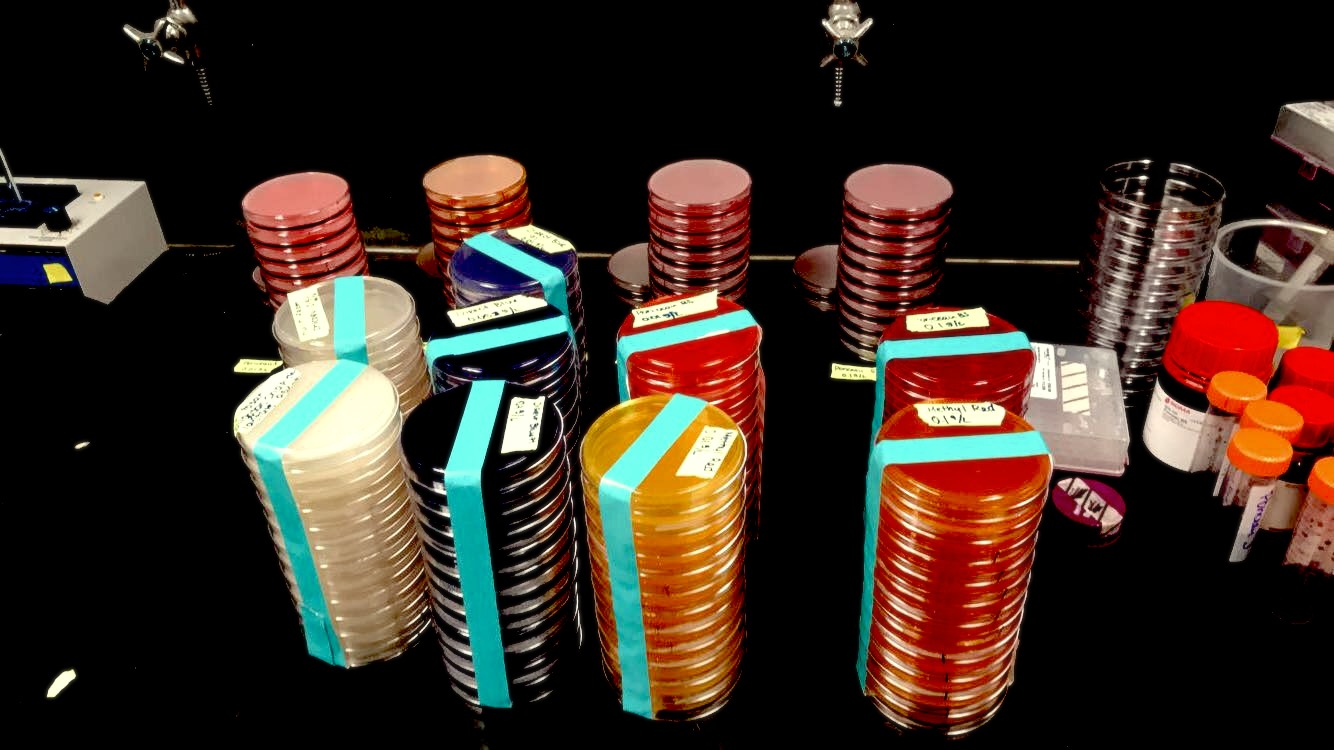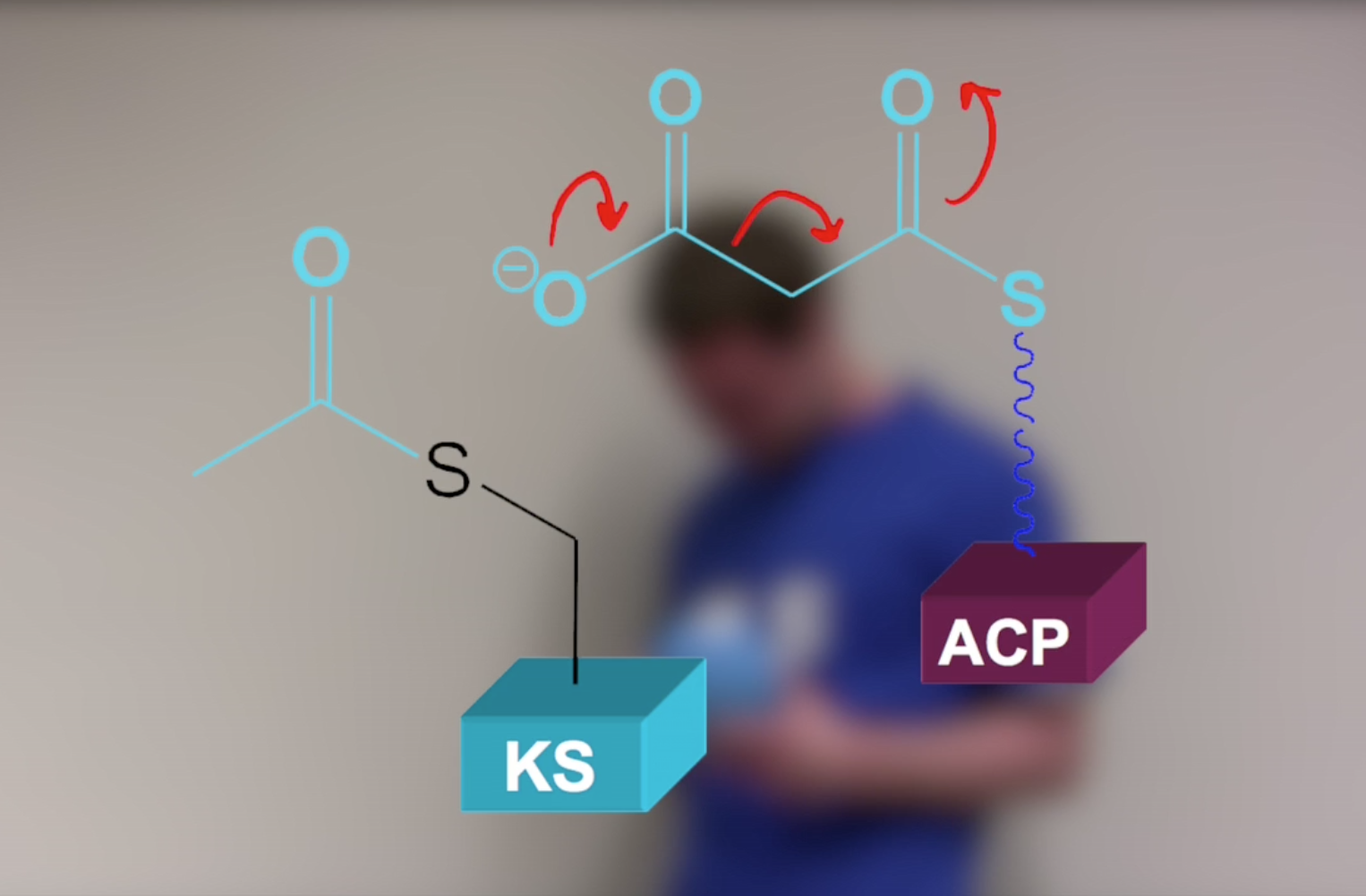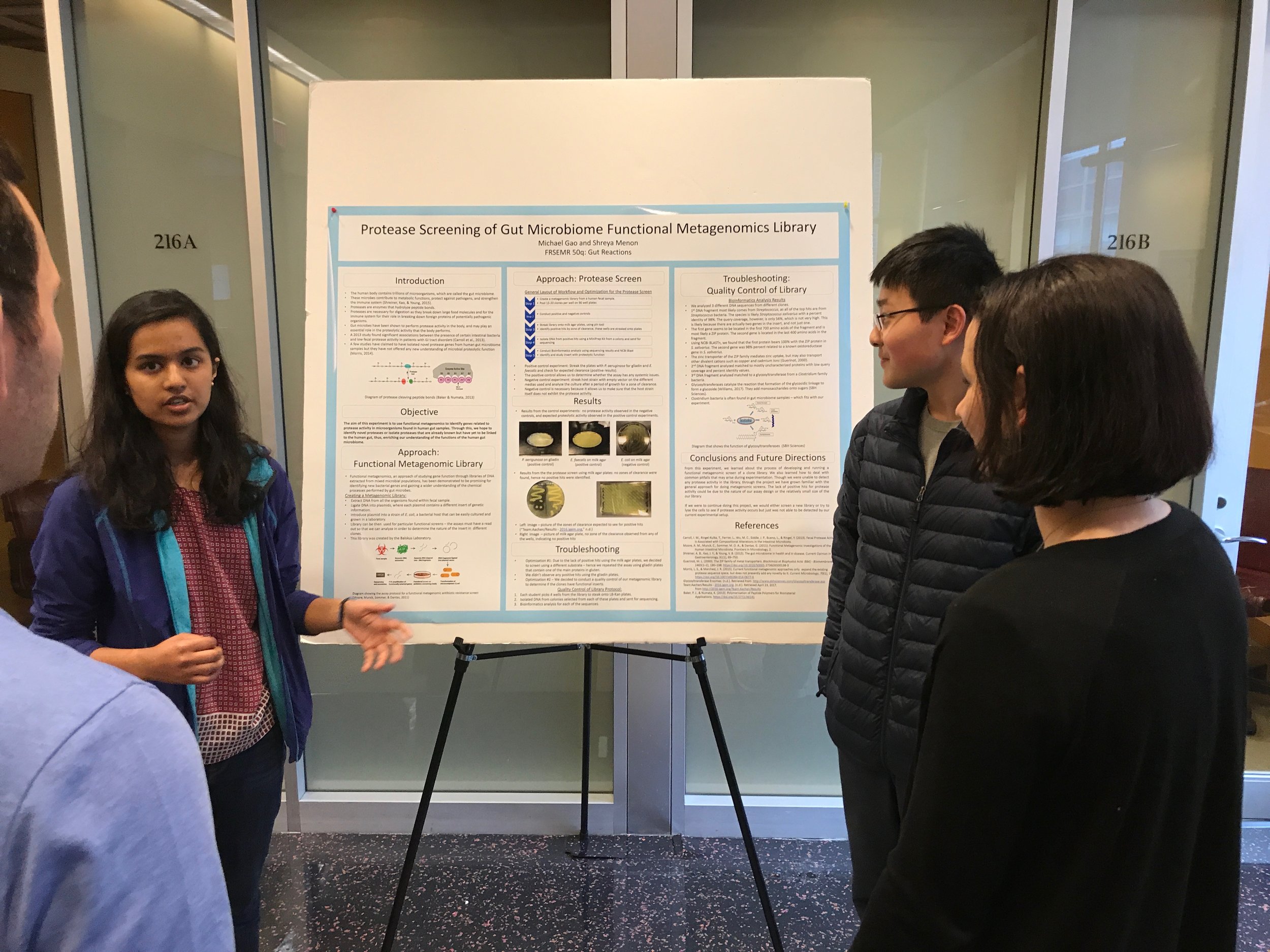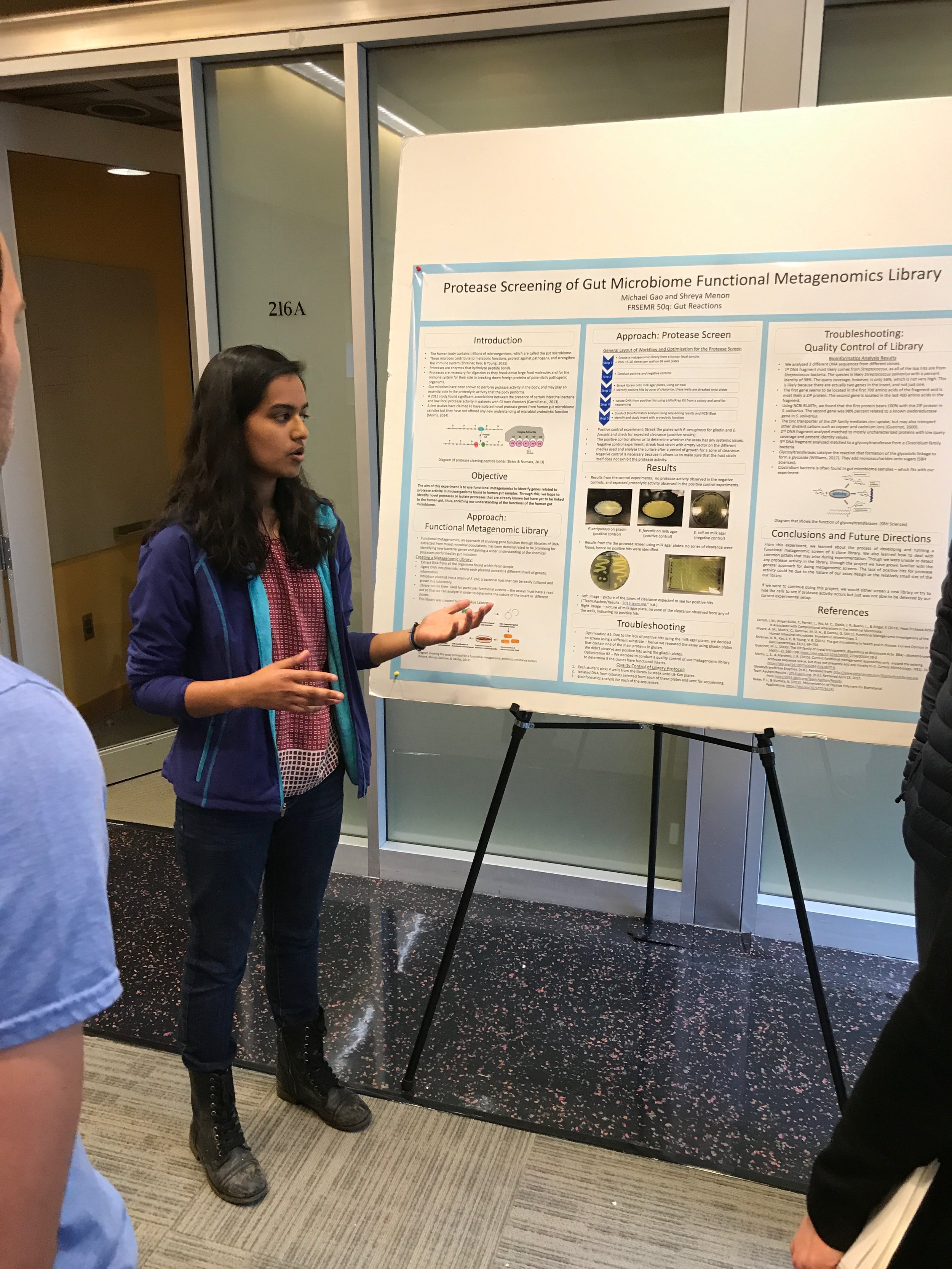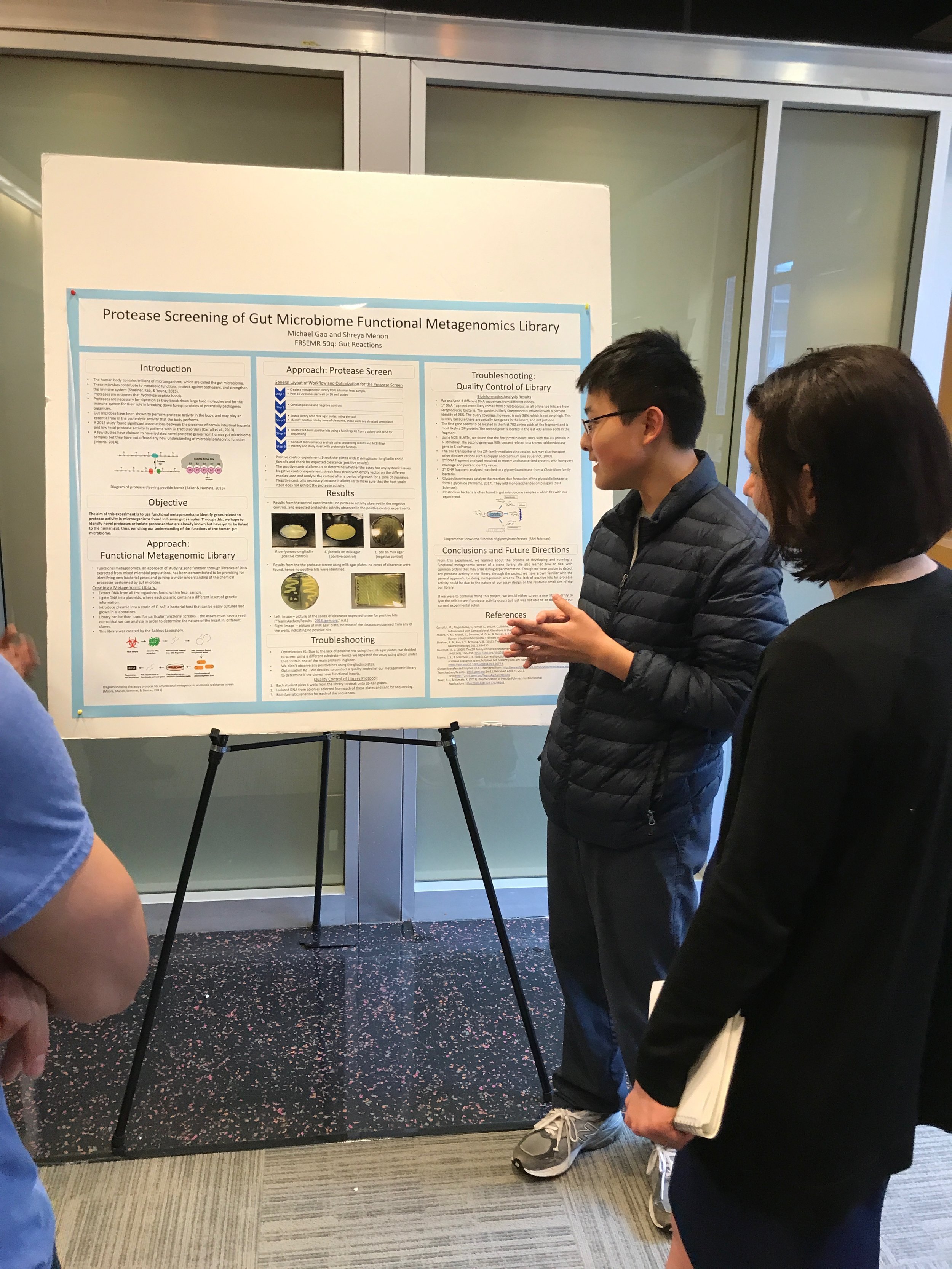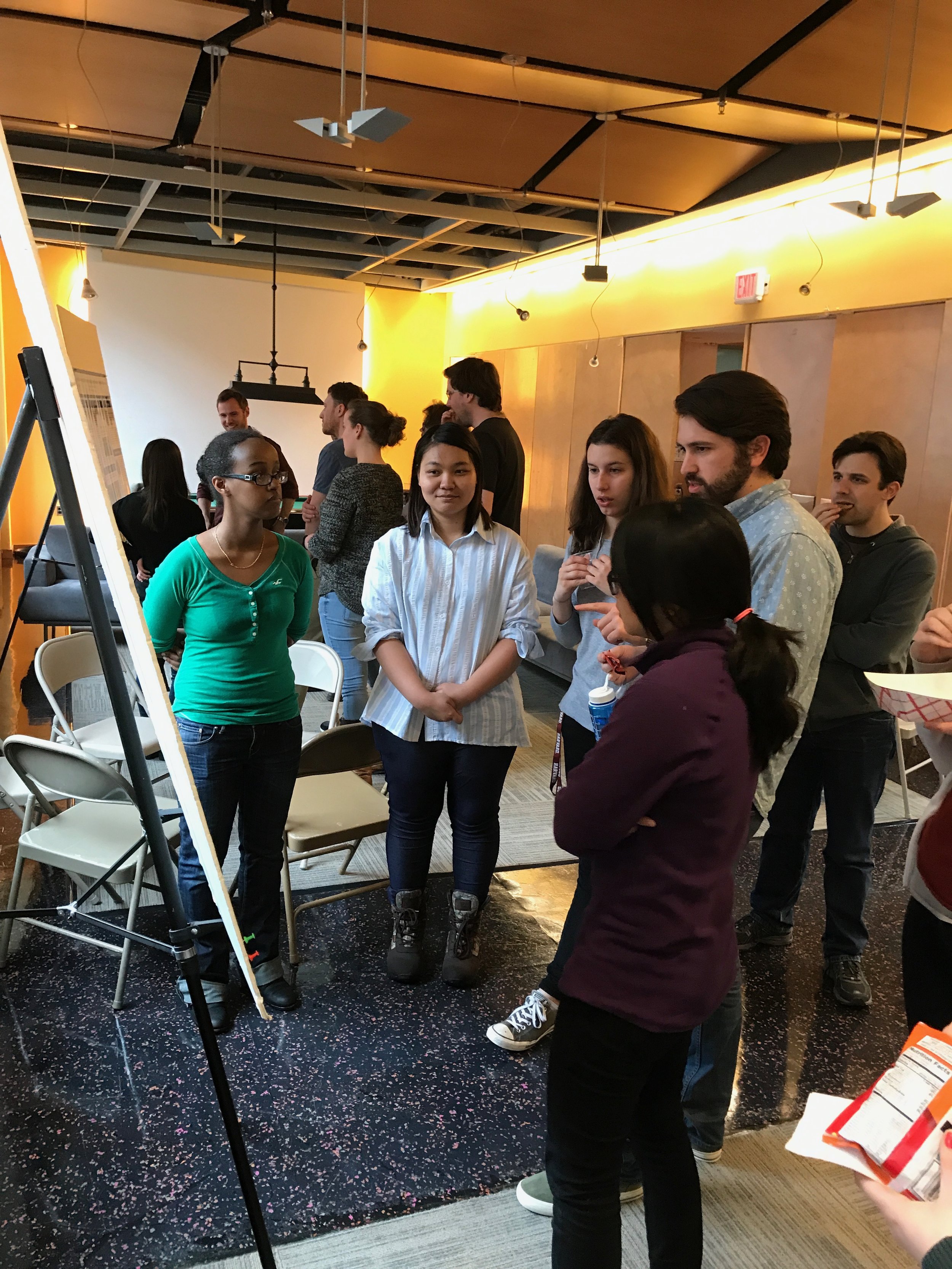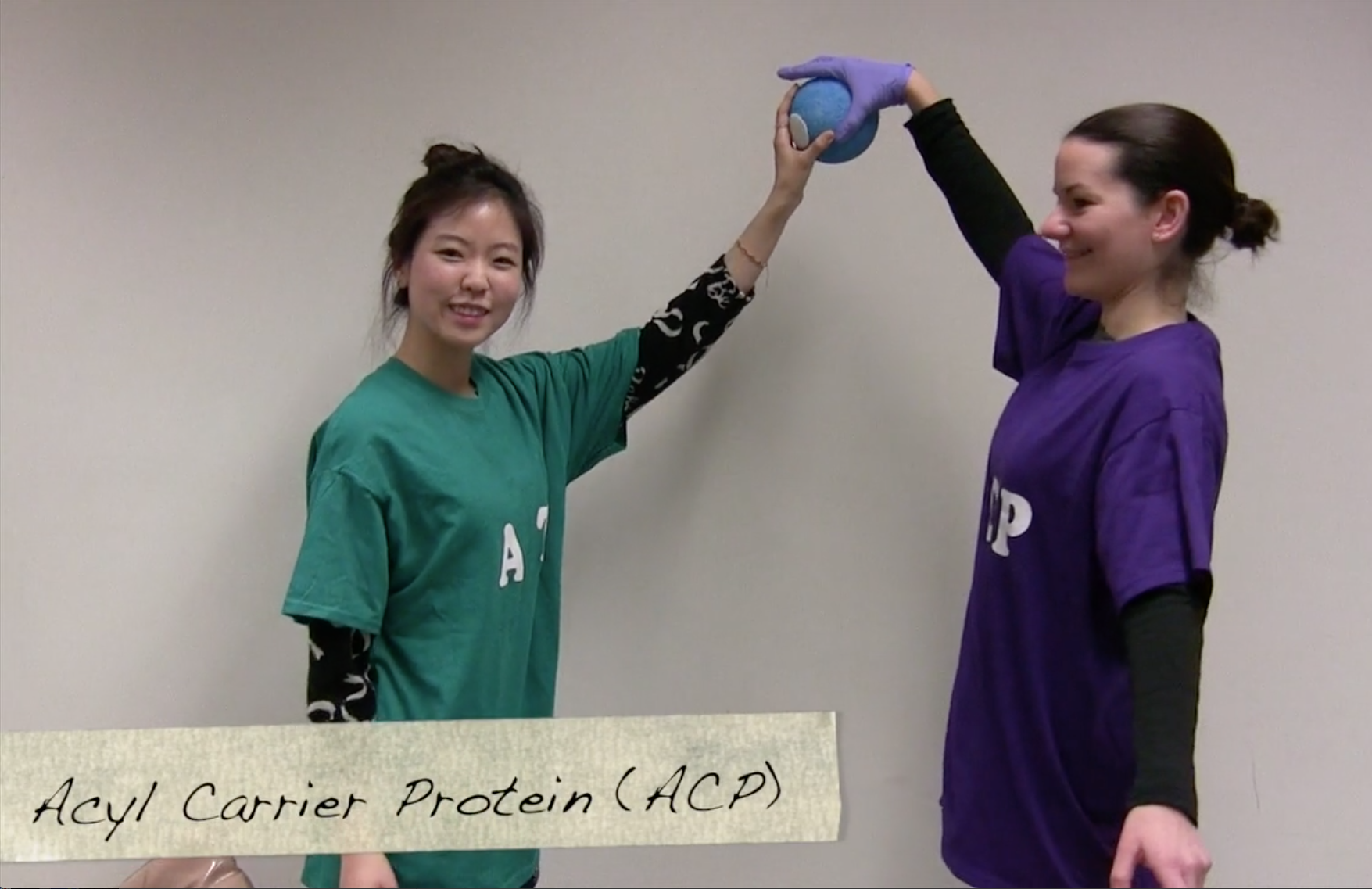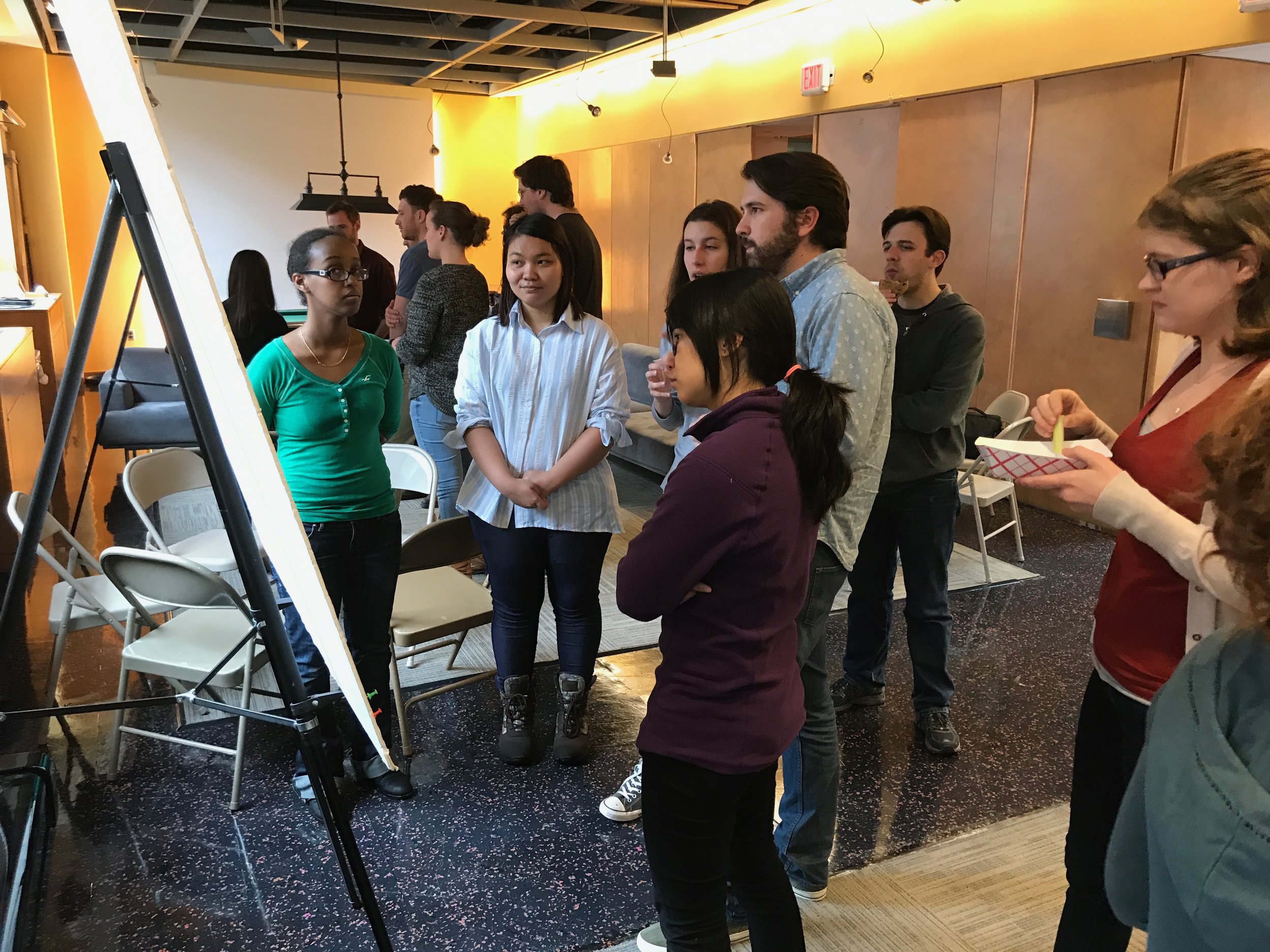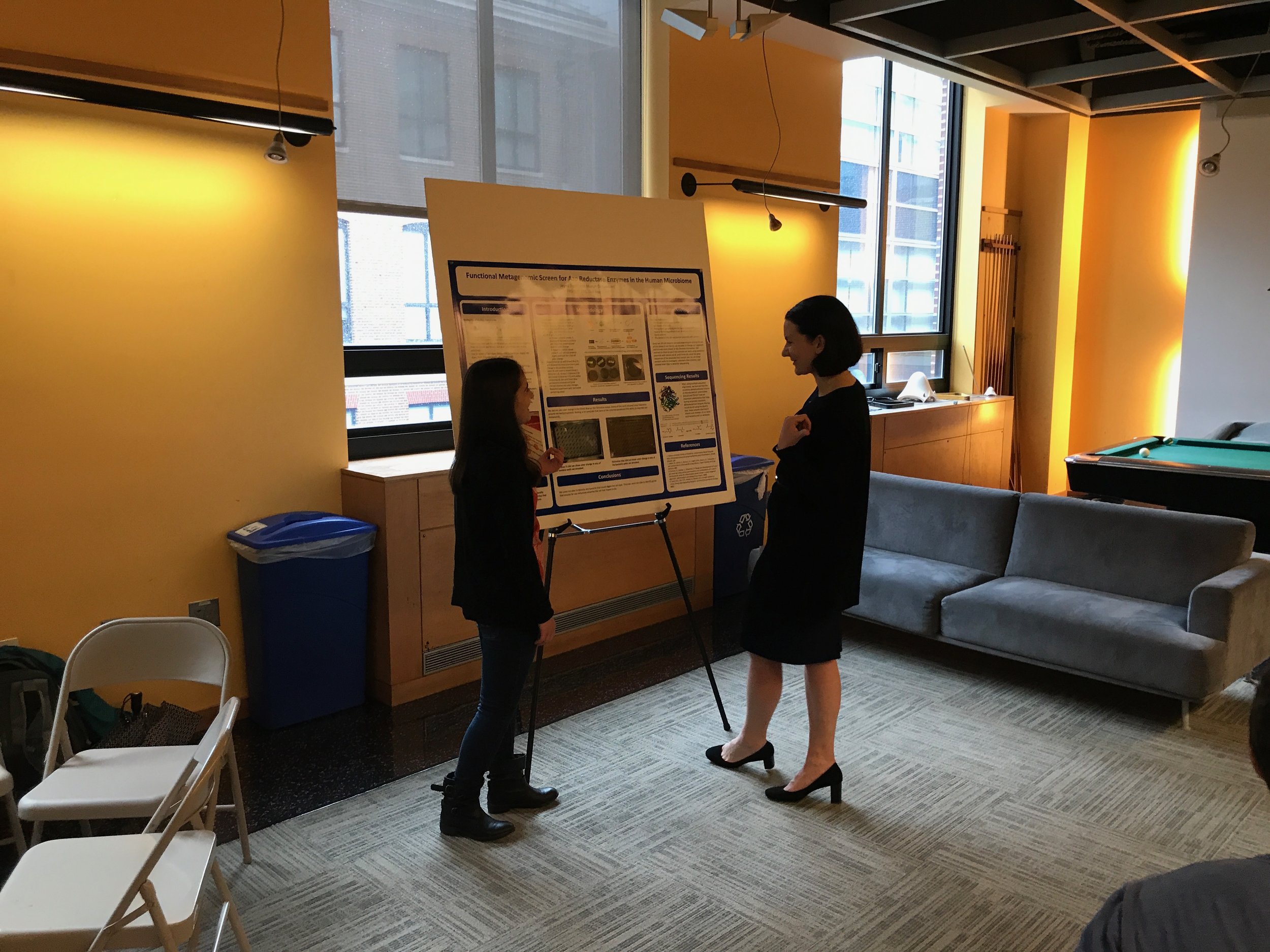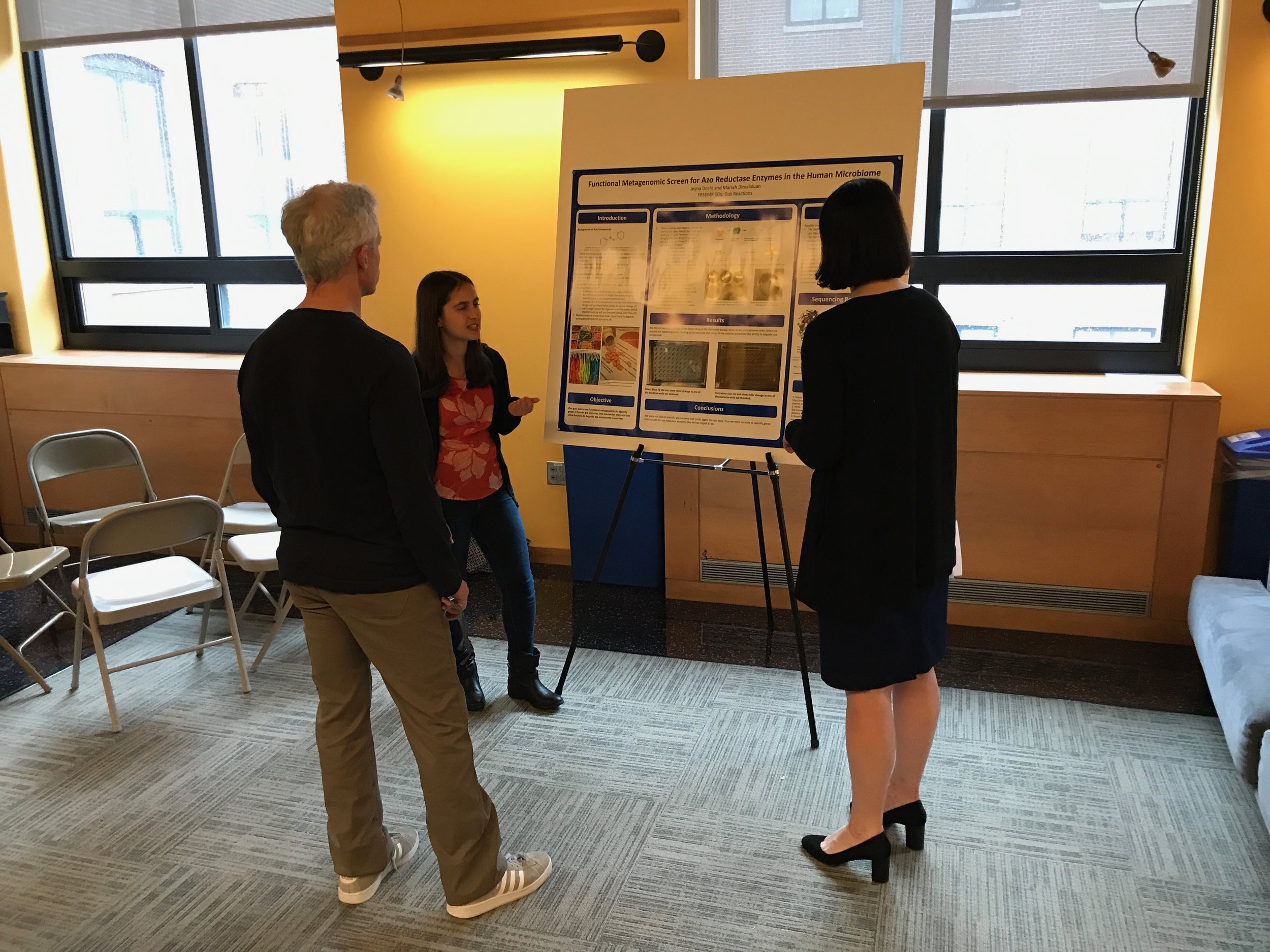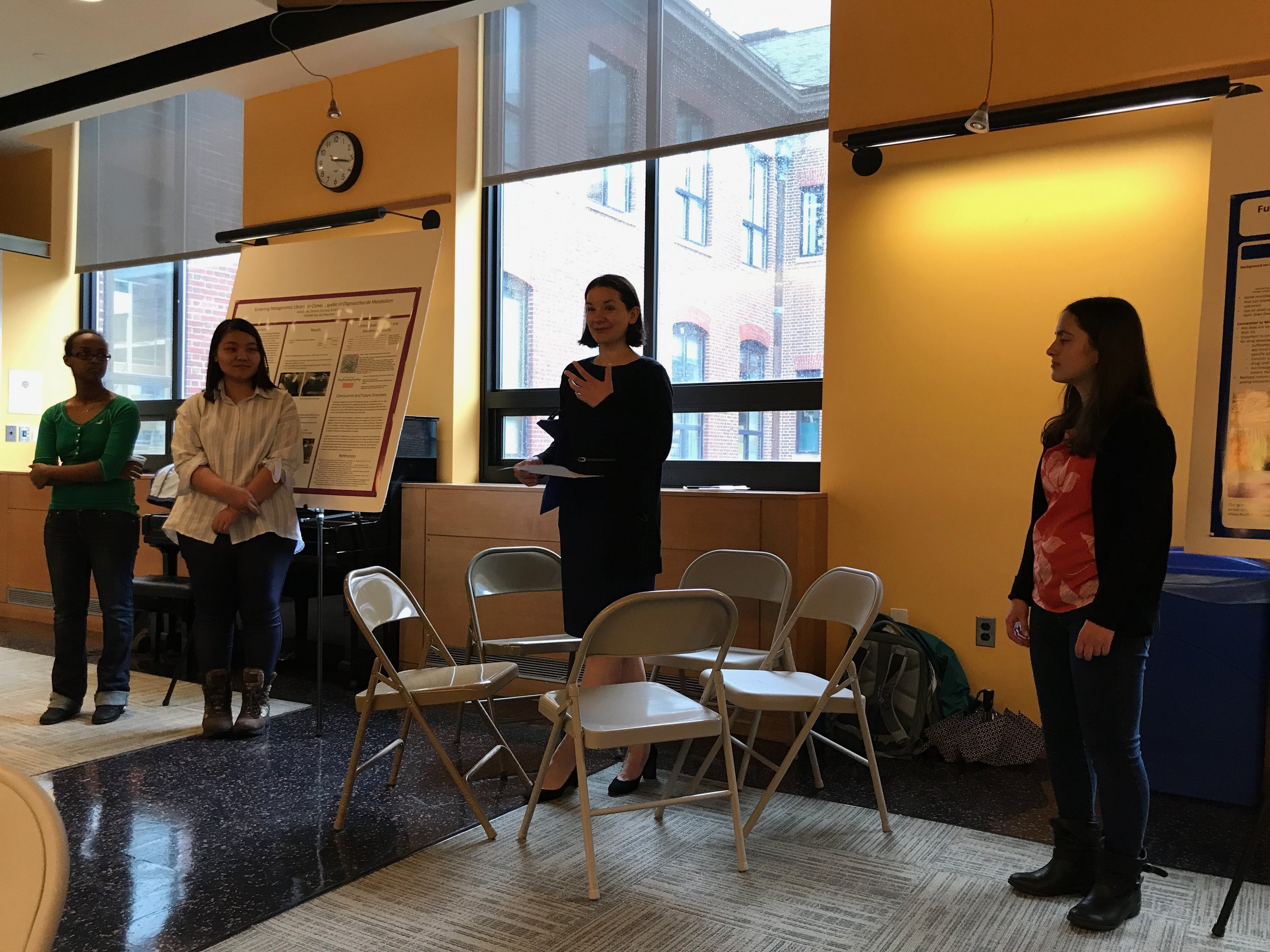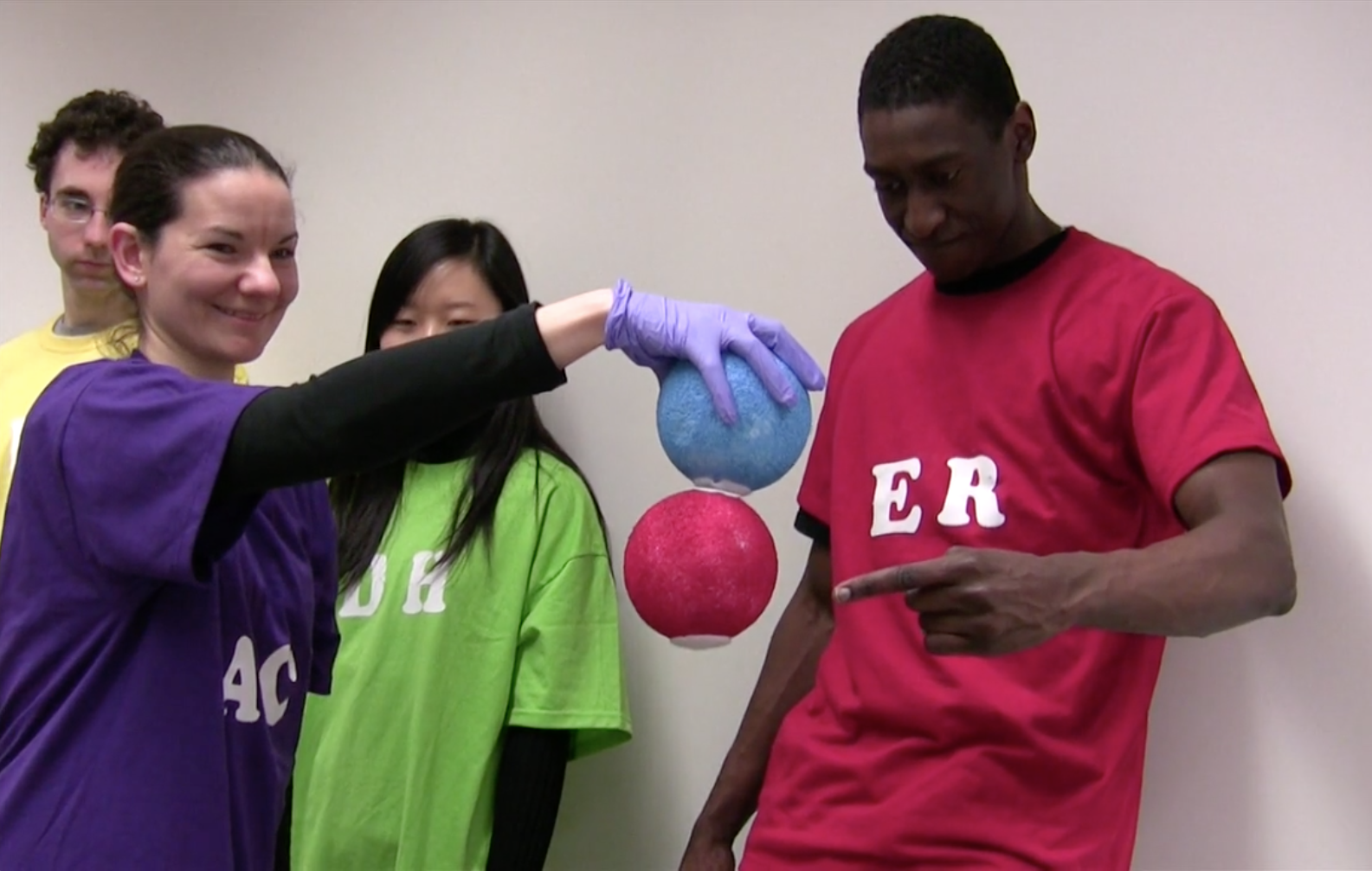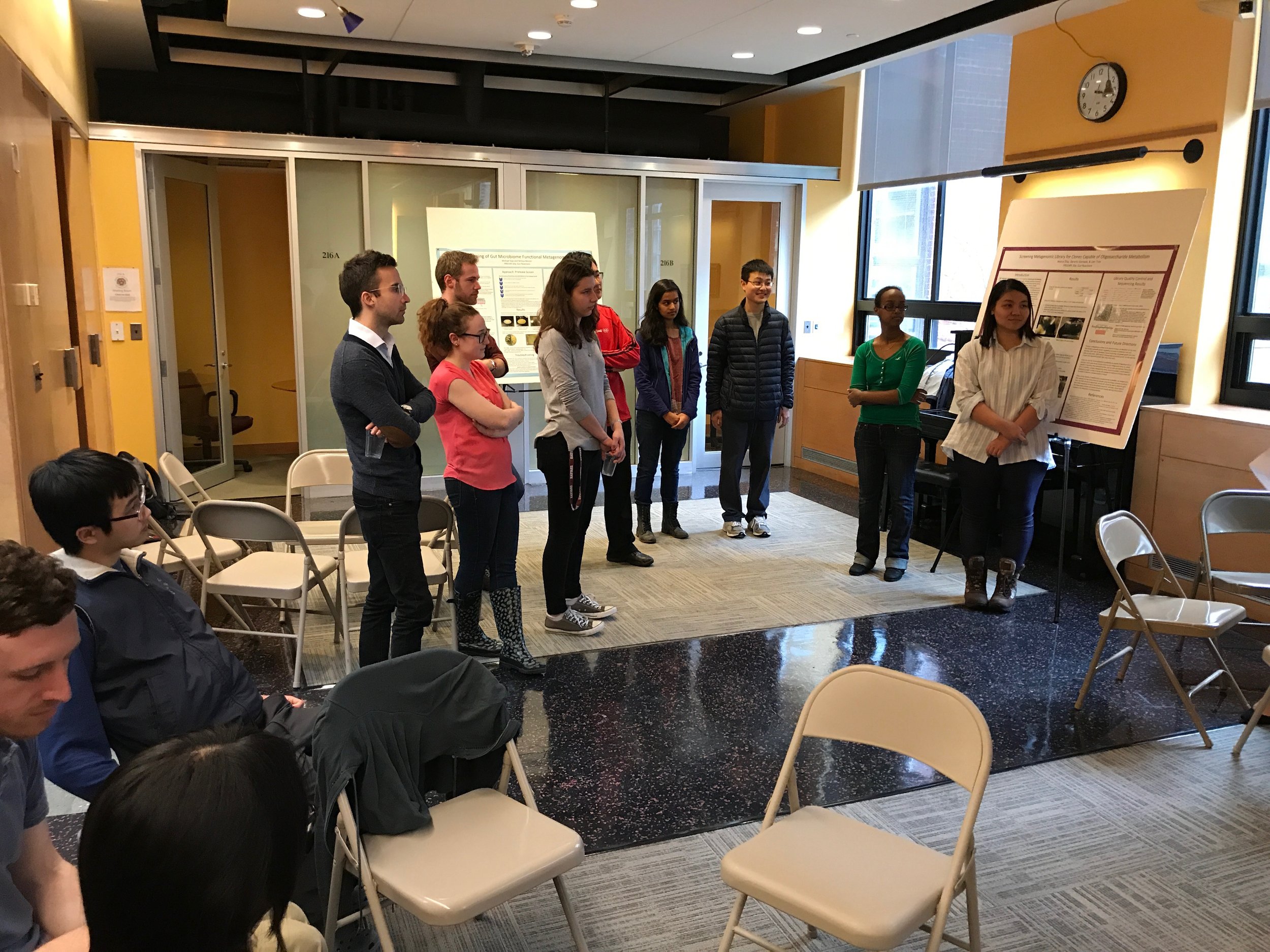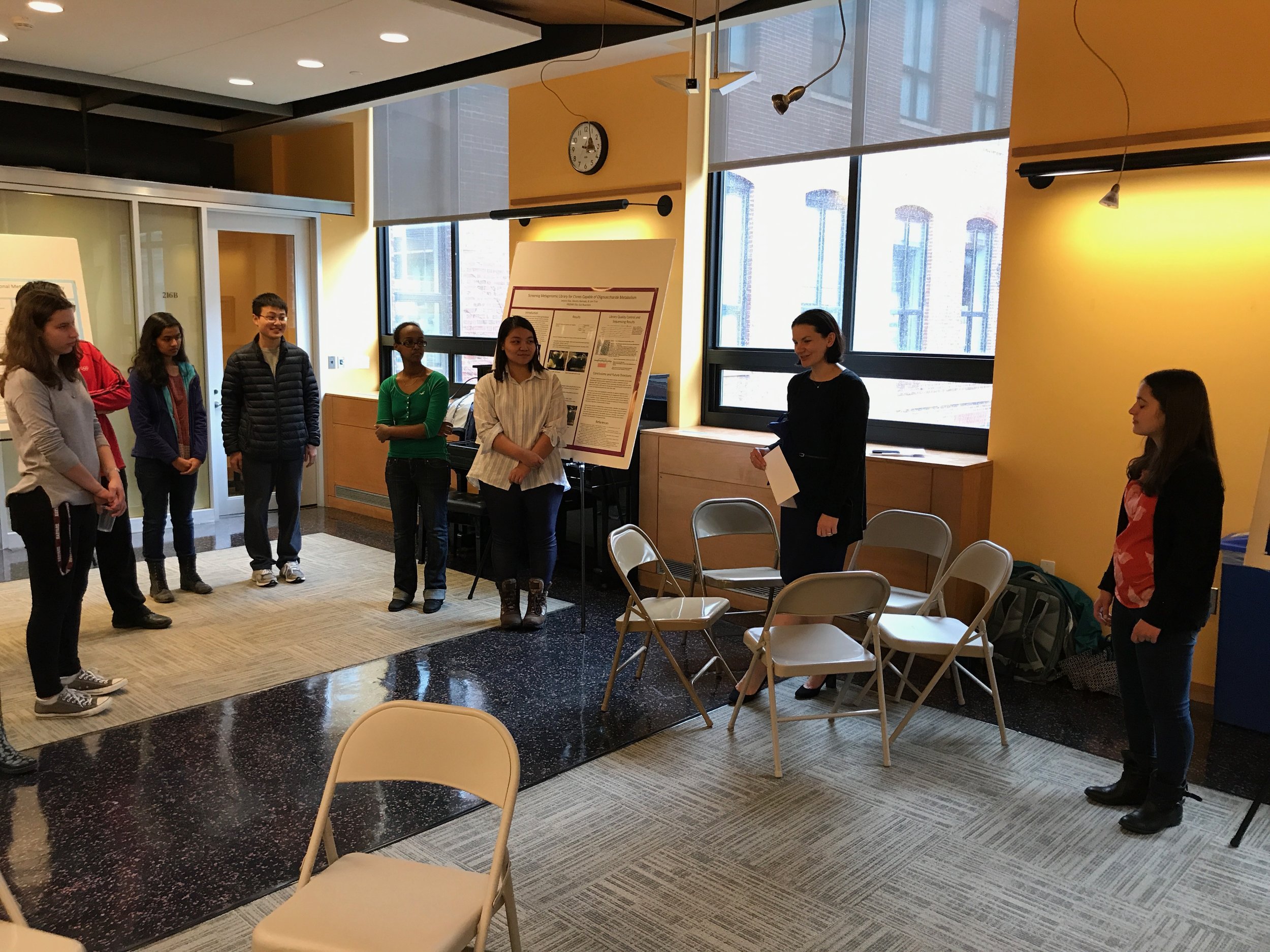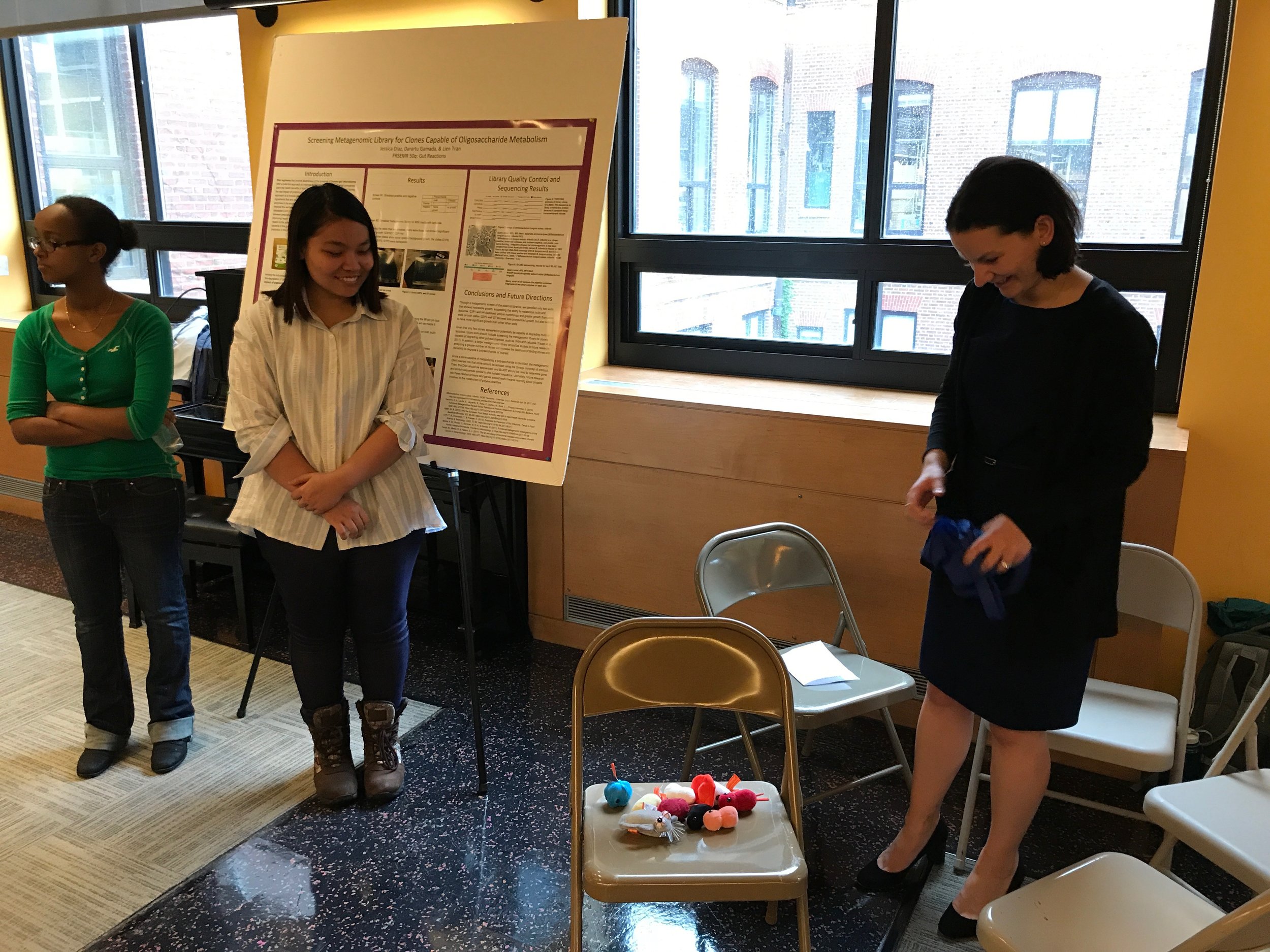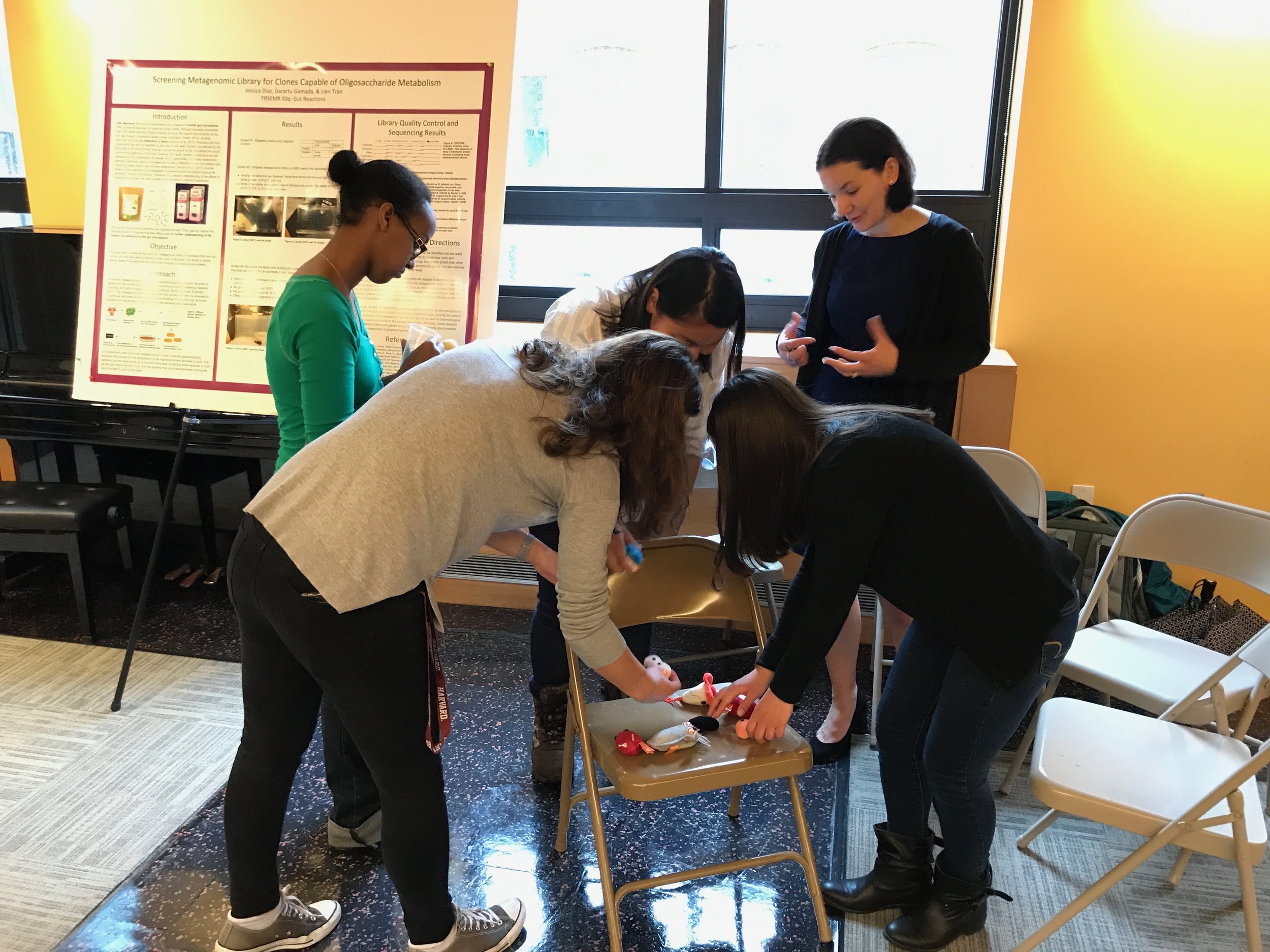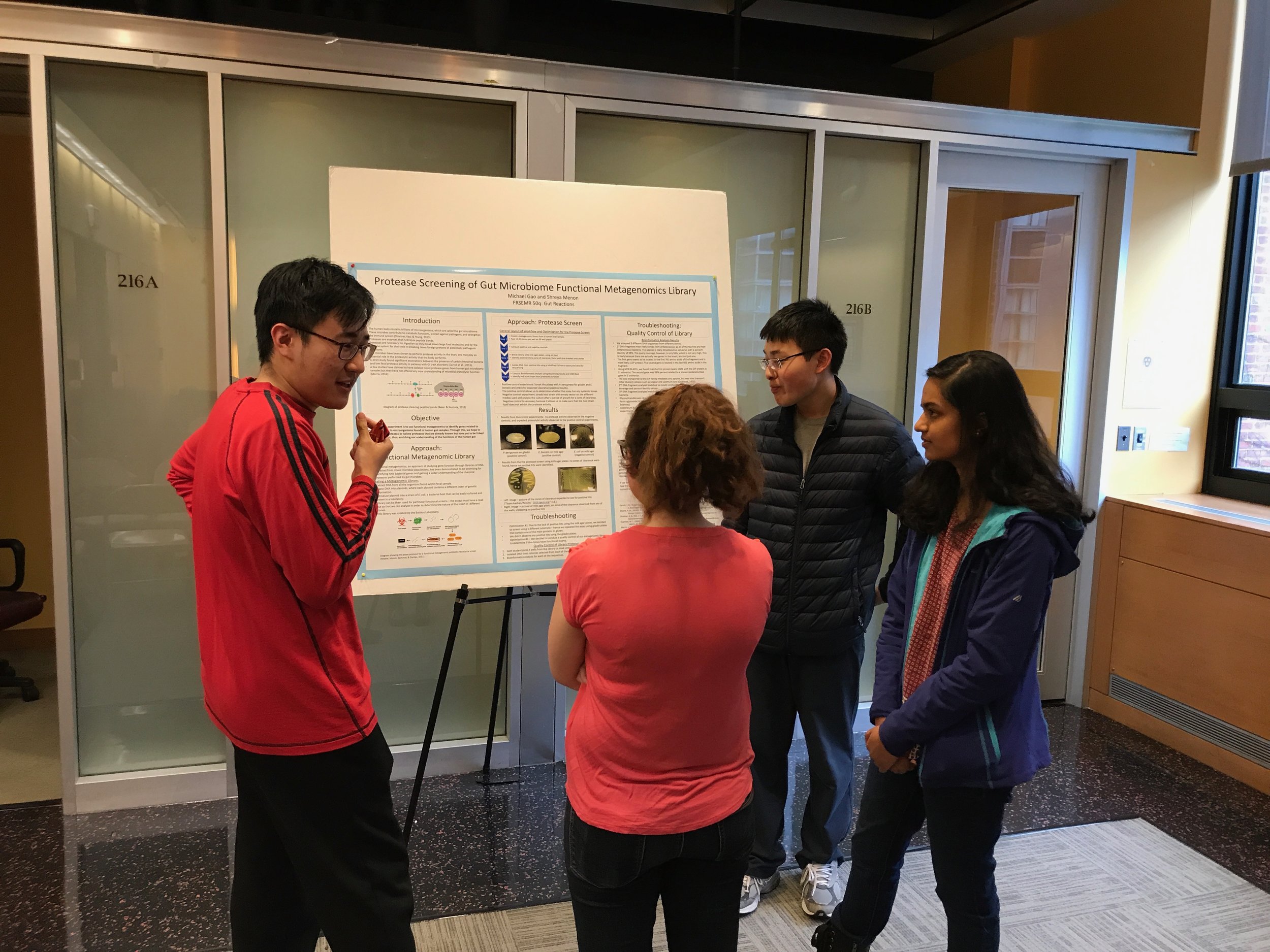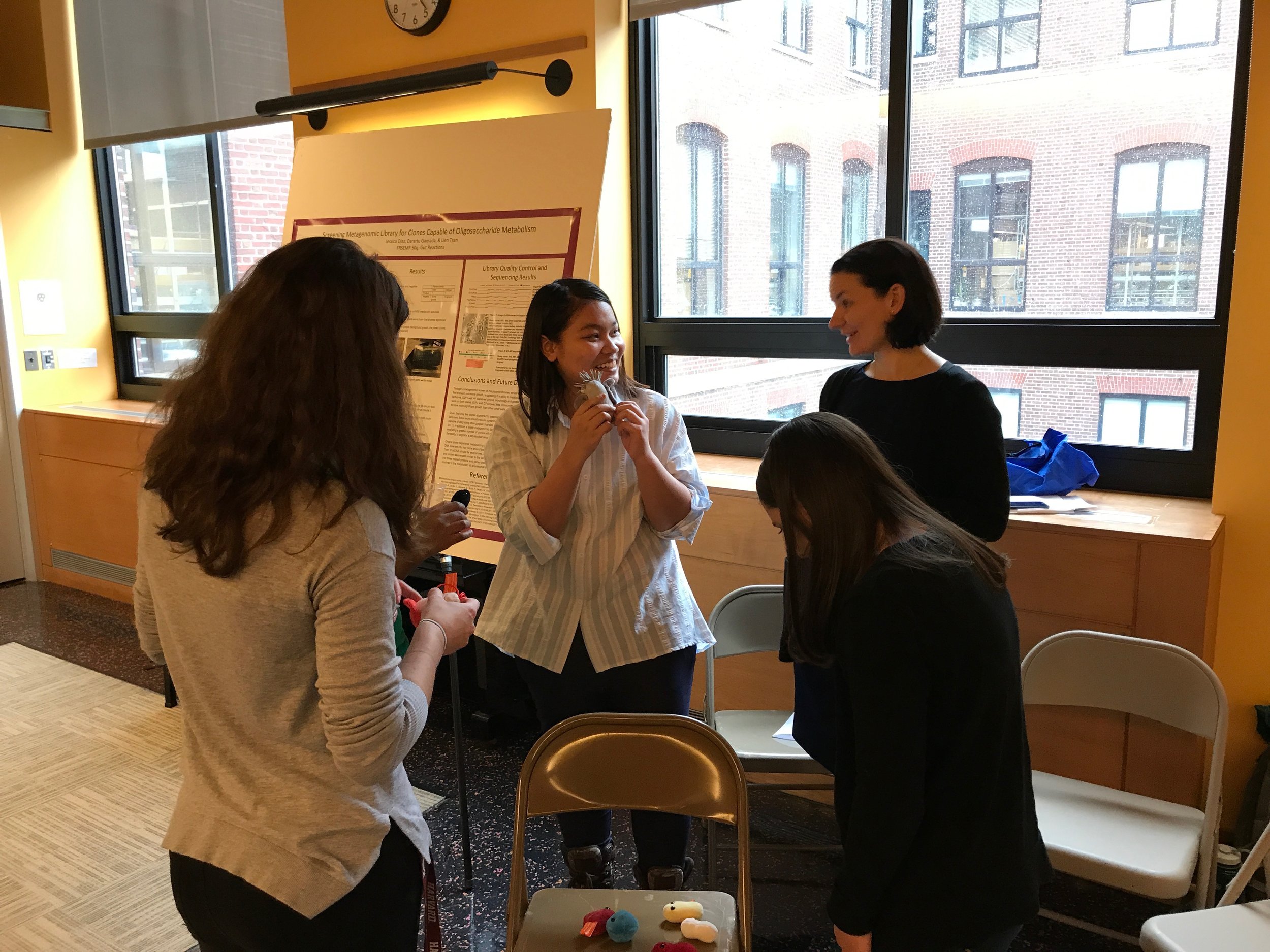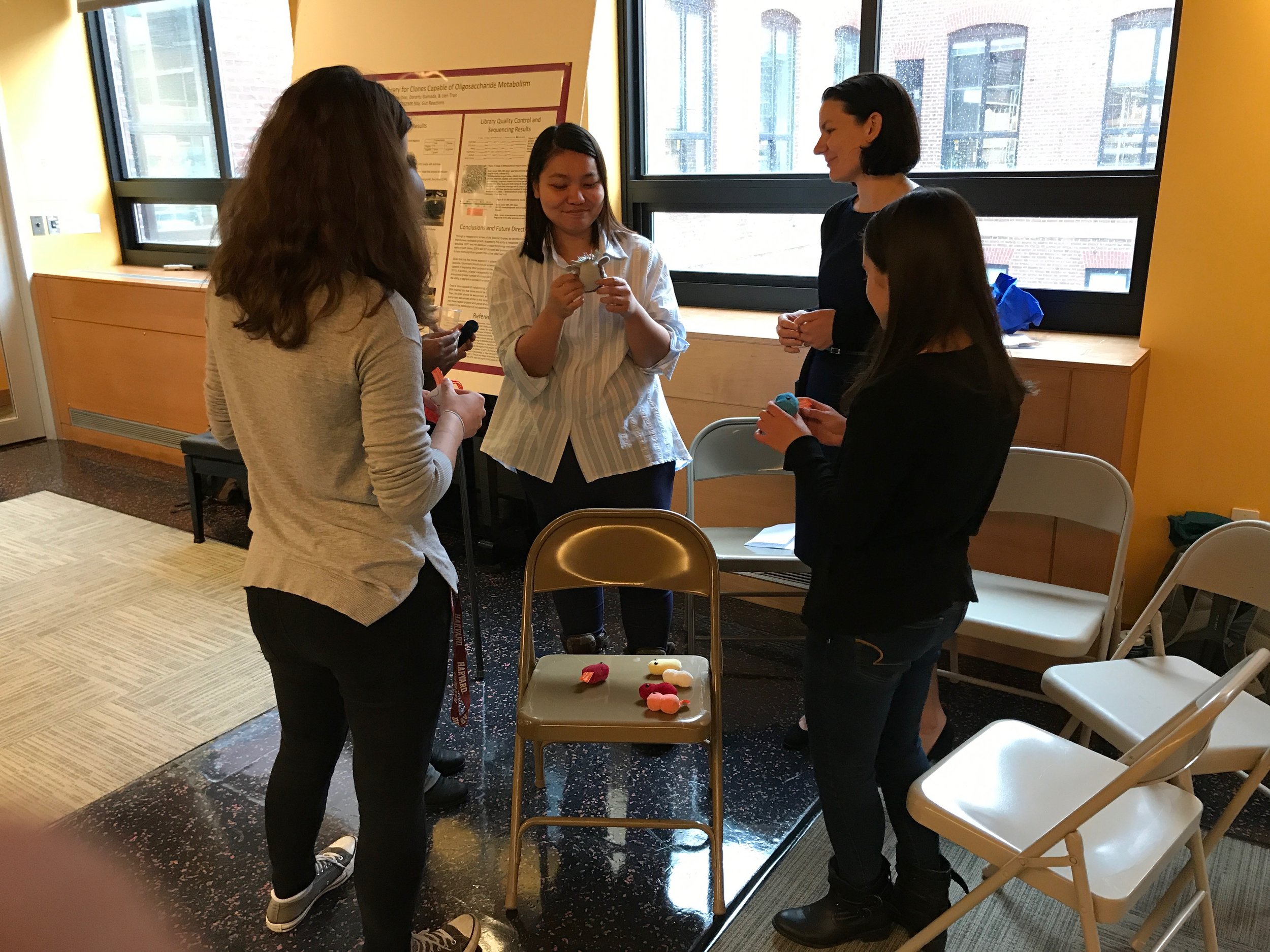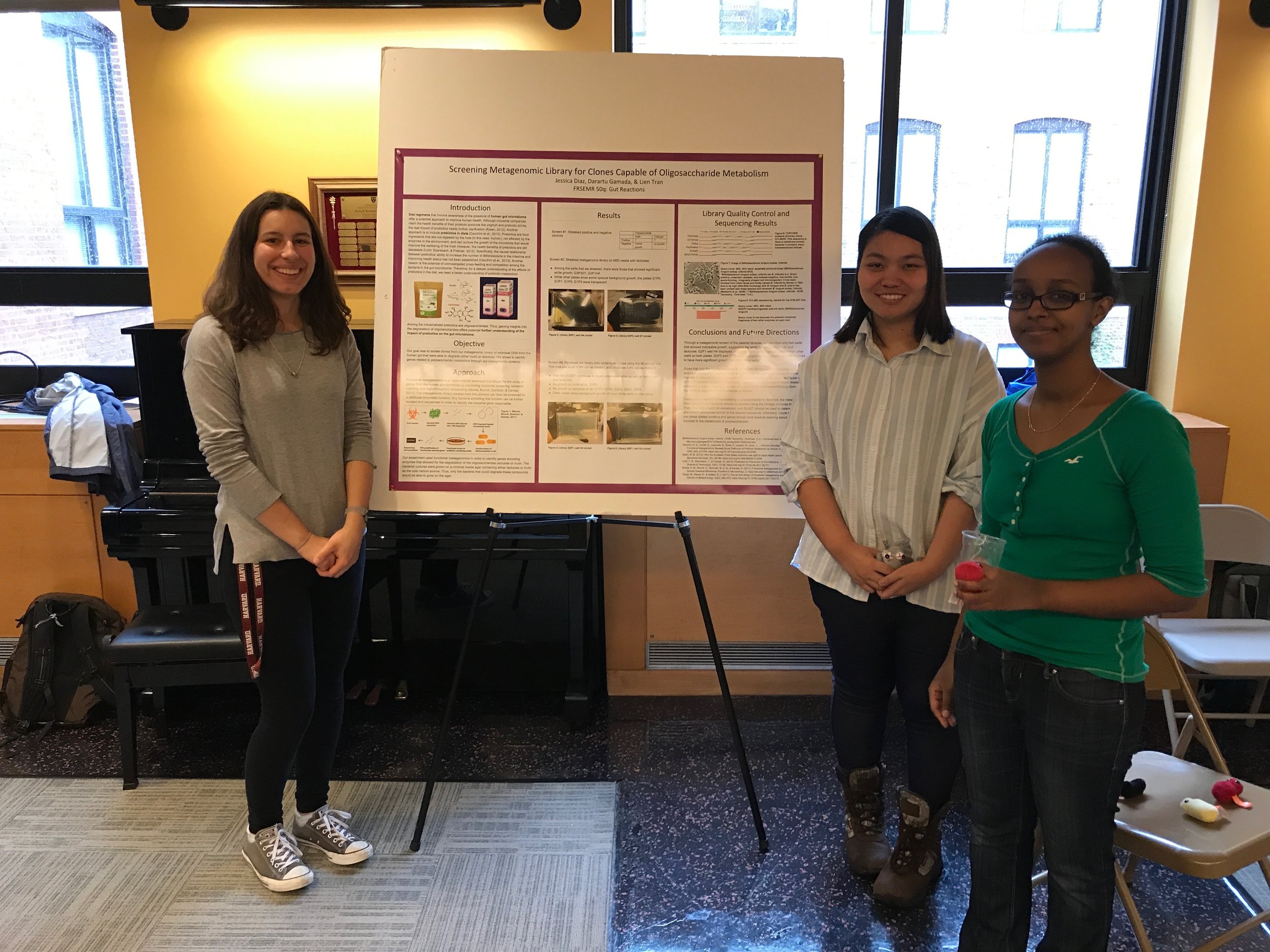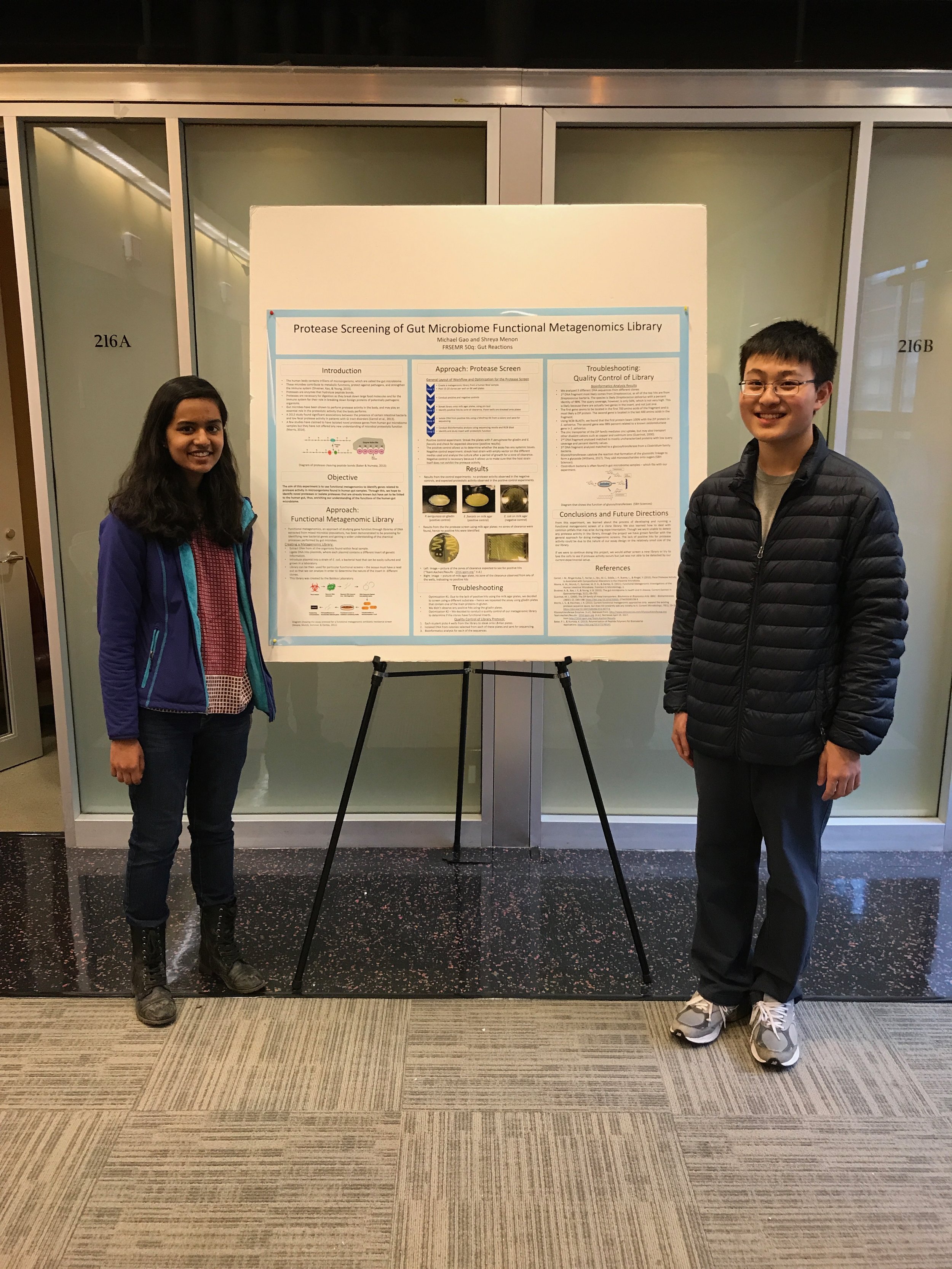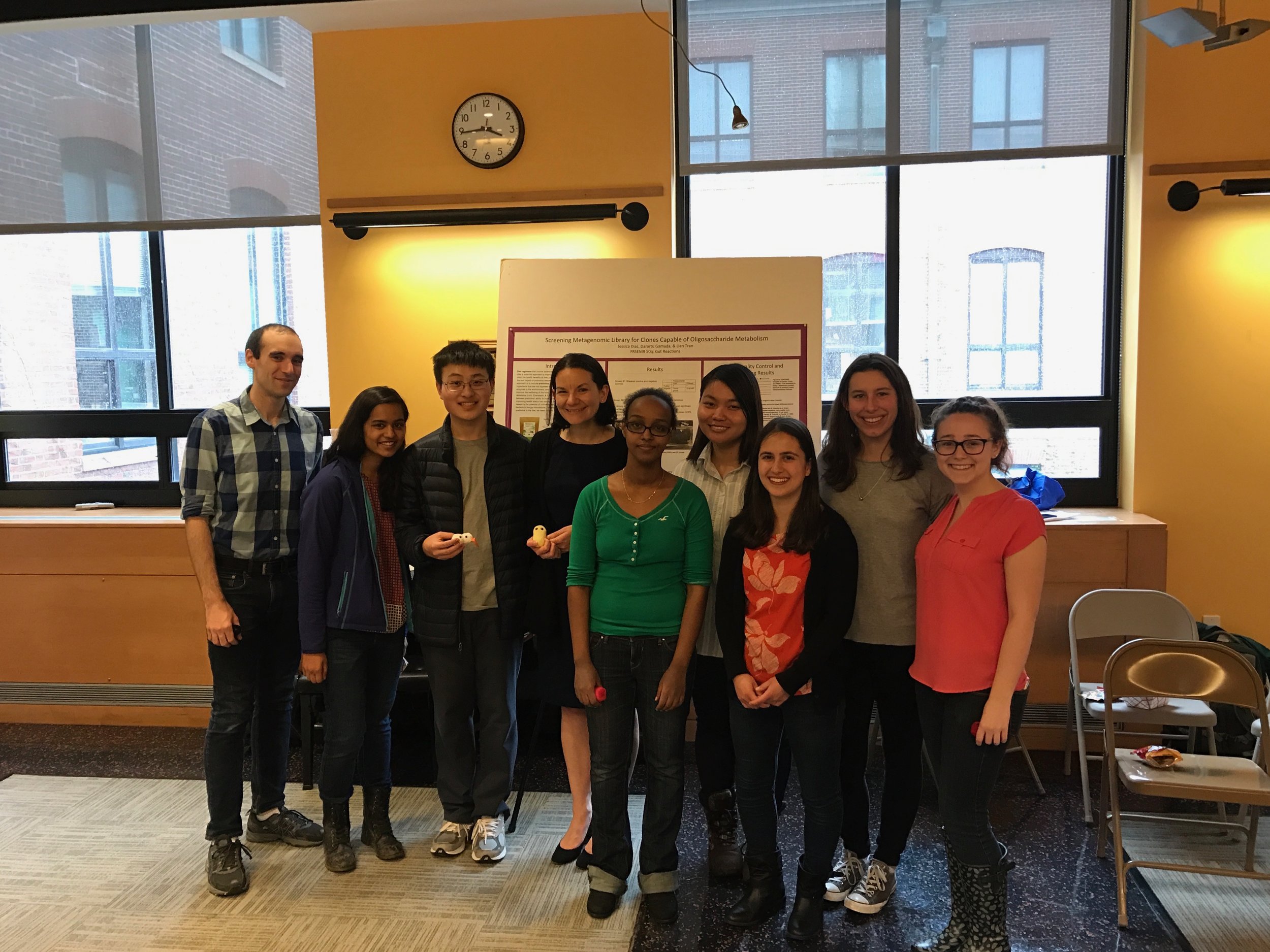Freshman Seminar 50Q:
Gut Reactions: Discovering Chemistry from the Human Microbiome
This laboratory-based Freshman Seminar was developed by Prof. Balskus to expose students to an exciting contemporary research problem: understanding the chemical capabilities of the human gut microbiome. Over the course of a semester, students work as a team to design and implement a functional metagenomic screen for uncovering new enzymes from this microbial community. Targets of interest have included enzymes involved in antibiotic resistance, metabolism of dietary components and pharmaceuticals, and modification of host metabolites. Students pursue these goals in a fully equipped laboratory dedicated to undergraduate research. Seminar meetings combine lab work with discussion of research-focused literature and experimental techniques. By having the opportunity to both explore a timely scientific problem and to drive the direction of their own research at a very early stage in their academic experience, students in this seminar are extremely well prepared to seek out further undergraduate research opportunities and to pursue scientific career paths.
Taught Spring 2017
Chemistry 171: Biological Synthesis
This graduate/upper undergraduate level course was developed by Prof. Balskus and was inspired by her research interests in organic and biological chemistry. Chem 171 examines chemical synthesis from a biological perspective, focusing on how organisms naturally construct and manipulate metabolites, as well as how biological catalysts and systems can be used for non-natural small molecule production. Topics covered include mechanistic enzymology, biosynthetic pathways and logic, biocatalysis, protein engineering, and synthetic biology. Recent discoveries and applications from both the academic and industrial scientific literature are prominently featured throughout the course, and a subset of the lectures are given by guest speakers from industry, highlighting the relevance of this topic to drug discovery and development as well as chemical manufacturing.
Taught Spring 2012, Fall 2014, Fall 2015
2014 Syllabus
Chemistry 27: Organic Chemistry of Life
This undergraduate organic chemistry course explores the chemical principles that govern the processes driving living systems with examples drawn from biochemistry, cell biology, and medicine. Understanding the enzymatic reaction mechanisms utilized in central metabolism is a central focus of the class. Lectures also highlight examples of enzymatic chemistry that impact important, current challenges in medicine (antibiotic resistance/infectious disease, obesity/metabolic disease) and enzymatic transformations that relate to emerging areas of human biology (epigenetics) and research in the Balskus Lab (human microbiome).
Taught Spring 2013, Spring 2014
2014 Syllabus
